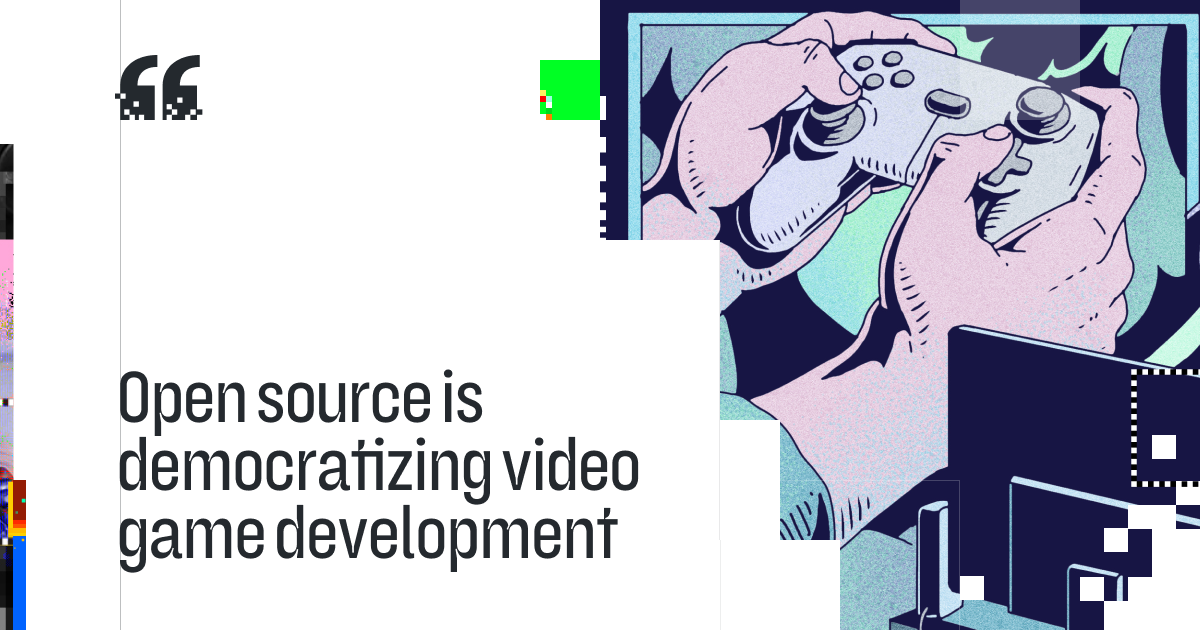- Reaction score
- 1,692
The goal of Candy Wrapper is simple: stomp all the opponents on the screen. Once you’ve cleared the screen, you advance to a new level. It starts off easy, with just one opponent and one platform. But each new level adds more opponents and/or platforms. It gets challenging fast.
What’s really impressive about Candy Wrapper isn’t its charming 8-bit graphics, thumpin’ soundtrack, or Bubble Bobble-inspired gameplay. It’s how the game was made. It was originally created in less than 24 hours and with fewer than 100 lines of GameMaker code as part of a game jam — essentially a hackathon for making games. In 2020, creator Harmony Honey open sourced an updated version of the game they built using the open source game engine Godot.
“I learned a lot from open source projects,” Honey says. “I was really confused about how to build certain things, and picking through other people’s code helped a lot, so I hope my code can help someone else, too.”
Creating video games used to mean one of two things: creating all the graphics and programming practically every aspect of your game from scratch, or working for a professional studio that could afford to hire a team to work on different elements. It could be a laborious undertaking for beginners or hobbyists, and the barrier to entry for anything other than a text-based game was high. But that’s changed, as demonstrated by the vast number of game jam entries and indie games available on platforms like Itch. “Game development is democratizing,” says Johanna Pirker, an assistant professor, software engineer, and researcher at the Institute of Interactive Systems and Data Science at Graz University of Technology. “You don’t necessarily need advanced programming and graphics skills to make a polished and professional game anymore,” Pirker says.
Game engines, point-and-click game-making tools, and graphics and sound asset packs make it possible for just about anyone to get started making games. And once they’ve created something, platforms like Itch and Steam give indie developers a place to publish their work. Game jams, meanwhile, provide opportunities for creators to meet and team up for projects—and that community can be the catalyst developers need to finish and share their games. “I’d been making games since middle school, but I didn’t actually release anything until I discovered game jams,” Honey says.

 github.com
github.com
What’s really impressive about Candy Wrapper isn’t its charming 8-bit graphics, thumpin’ soundtrack, or Bubble Bobble-inspired gameplay. It’s how the game was made. It was originally created in less than 24 hours and with fewer than 100 lines of GameMaker code as part of a game jam — essentially a hackathon for making games. In 2020, creator Harmony Honey open sourced an updated version of the game they built using the open source game engine Godot.
“I learned a lot from open source projects,” Honey says. “I was really confused about how to build certain things, and picking through other people’s code helped a lot, so I hope my code can help someone else, too.”
Creating video games used to mean one of two things: creating all the graphics and programming practically every aspect of your game from scratch, or working for a professional studio that could afford to hire a team to work on different elements. It could be a laborious undertaking for beginners or hobbyists, and the barrier to entry for anything other than a text-based game was high. But that’s changed, as demonstrated by the vast number of game jam entries and indie games available on platforms like Itch. “Game development is democratizing,” says Johanna Pirker, an assistant professor, software engineer, and researcher at the Institute of Interactive Systems and Data Science at Graz University of Technology. “You don’t necessarily need advanced programming and graphics skills to make a polished and professional game anymore,” Pirker says.
Game engines, point-and-click game-making tools, and graphics and sound asset packs make it possible for just about anyone to get started making games. And once they’ve created something, platforms like Itch and Steam give indie developers a place to publish their work. Game jams, meanwhile, provide opportunities for creators to meet and team up for projects—and that community can be the catalyst developers need to finish and share their games. “I’d been making games since middle school, but I didn’t actually release anything until I discovered game jams,” Honey says.

Open source is democratizing video game development
The democratization of open source game development, from Adobe Flash to game jams and beyond:



